FREEMUSIC07
Main » 2011 » January » 25
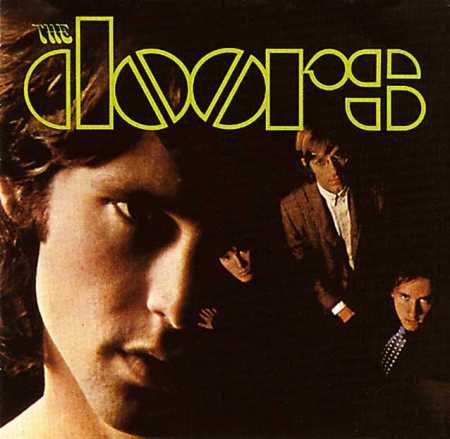 The Doors were an American rock band formed in 1965 in Los Angeles, California, with vocalist Jim Morrison, keyboardist Ray Manzarek, drummer John Densmore, and guitarist Robby Krieger. The band took its name from Aldous Huxley's book The Doors of Perception, the title of which was a reference to a William Blake quotation: "When the doors of perception are cleansed, things will appear to man as they truly are...infinite." They were among the most controversial rock acts of the 1960s, due mostly to Morrison's wild, poetic lyrics and charismatic but unpredictable stage persona. After Morrison's death in 1971, the remaining members continued as a trio until finally disbanding in 1973. Although The Doors' active career ended in 1973, their popularity has persisted. According to the RIAA, they have sold over 32.5 million albums in the US alone. The band has sold 90 million albums worldwide. Ray Manzarek and Robby Krieger continue to tour as Manzarek-Krieger, performing Doors songs exclusively. The Doors is the debut album by the American rock band The Doors, recorded in August 1966 and released in January 1967. It features the breakthrough single "Light My Fire", extended with a substantial instrumental section mostly omitted on the single release, and the lengthy song "The End" with its Oedipal spoken-word section. The Doors credit the success of their first album to being able to work the songs out night after night at the Whisky a Go Go and the London Fog. The album was ranked number 42 on Rolling Stone's list the 500 Greatest Albums of All Time.01 Break on through (to the other side)02 Soul kitchen03 The crystal ship04 Twentieth century fox05 Alabama song (whisky bar)06 Light my fire07 Back door man08 I looked at you09 End of the night10 Take it as it comes11 The end
LINK The Doors were an American rock band formed in 1965 in Los Angeles, California, with vocalist Jim Morrison, keyboardist Ray Manzarek, drummer John Densmore, and guitarist Robby Krieger. The band took its name from Aldous Huxley's book The Doors of Perception, the title of which was a reference to a William Blake quotation: "When the doors of perception are cleansed, things will appear to man as they truly are...infinite." They were among the most controversial rock acts of the 1960s, due mostly to Morrison's wild, poetic lyrics and charismatic but unpredictable stage persona. After Morrison's death in 1971, the remaining members continued as a trio until finally disbanding in 1973. Although The Doors' active career ended in 1973, their popularity has persisted. According to the RIAA, they have sold over 32.5 million albums in the US alone. The band has sold 90 million albums worldwide. Ray Manzarek and Robby Krieger continue to tour as Manzarek-Krieger, performing Doors songs exclusively. The Doors is the debut album by the American rock band The Doors, recorded in August 1966 and released in January 1967. It features the breakthrough single "Light My Fire", extended with a substantial instrumental section mostly omitted on the single release, and the lengthy song "The End" with its Oedipal spoken-word section. The Doors credit the success of their first album to being able to work the songs out night after night at the Whisky a Go Go and the London Fog. The album was ranked number 42 on Rolling Stone's list the 500 Greatest Albums of All Time.01 Break on through (to the other side)02 Soul kitchen03 The crystal ship04 Twentieth century fox05 Alabama song (whisky bar)06 Light my fire07 Back door man08 I looked at you09 End of the night10 Take it as it comes11 The end
LINK |
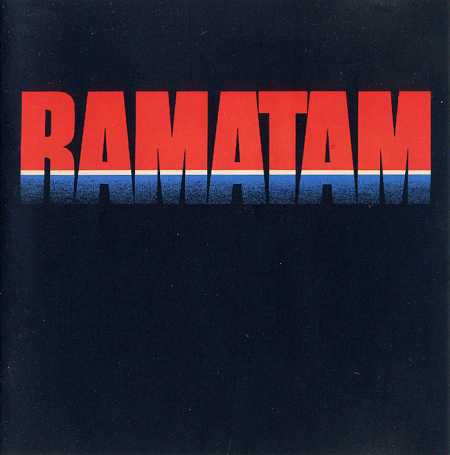 Ramatam was a 1970s rock band featuring Mike Pinera on guitar and vocals, Mitch Mitchell on drums, and April Lawton on lead guitar. Tom Dowd produced their self-titled debut album in 1972. Pinera was known for his work with Blues Image ("Ride Captain Ride") and later Iron Butterfly. Mitchell was previously with the Jimi Hendrix Experience.The group also included some former members of Janis Joplin's Big Brother and The Holding Company. After some changes in membership, the band released its second and final album, In April Came the Dawning of the Red Suns (1973). Pinera and Mitchell had departed from the band at that point, leaving the band's focus entirely on Lawton. The band fractured under the pressure of life on the road and broke up in 1974. Ramatam was notable for having April Lawton, a female lead guitarist. At the time of the first album's release, female rock musicians who actively played and participated in the band were relatively rare, particularly female musicians who played aggressive lead guitar, as Lawton did. She was favorably compared to Jeff Beck by Guitar Player Magazine.01 - Whiskey Place02 - Heart Song03 - Ask Brother Ask04 - What Dream I Am05 - Wayso06 - Changing Days07 - Strange Place08 - Wild Like Wine09 - Can't Sit StillLINK Ramatam was a 1970s rock band featuring Mike Pinera on guitar and vocals, Mitch Mitchell on drums, and April Lawton on lead guitar. Tom Dowd produced their self-titled debut album in 1972. Pinera was known for his work with Blues Image ("Ride Captain Ride") and later Iron Butterfly. Mitchell was previously with the Jimi Hendrix Experience.The group also included some former members of Janis Joplin's Big Brother and The Holding Company. After some changes in membership, the band released its second and final album, In April Came the Dawning of the Red Suns (1973). Pinera and Mitchell had departed from the band at that point, leaving the band's focus entirely on Lawton. The band fractured under the pressure of life on the road and broke up in 1974. Ramatam was notable for having April Lawton, a female lead guitarist. At the time of the first album's release, female rock musicians who actively played and participated in the band were relatively rare, particularly female musicians who played aggressive lead guitar, as Lawton did. She was favorably compared to Jeff Beck by Guitar Player Magazine.01 - Whiskey Place02 - Heart Song03 - Ask Brother Ask04 - What Dream I Am05 - Wayso06 - Changing Days07 - Strange Place08 - Wild Like Wine09 - Can't Sit StillLINK |
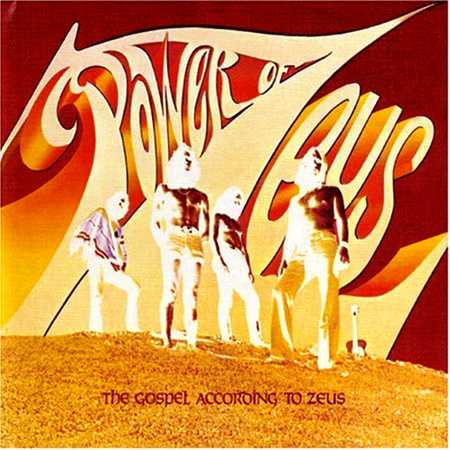 Power Of Zeus released their one and only album on the Rare Earth label in 1970. The Gospel According To Zeus is an inspired amalgam of screaming rock histrionics, oddball psychedelic strangeness and some of themost intuitively funky yet blisteringly heavy music ever committed to tape. The album has become highly sought after by breakbeat collectors, hip hop producers and other such connoisseurs of aged vinyl because of the lengthy "open" (ie solo) drum break in the final track, The Sorcerer Of Isis (The Ritual Of The Mole). The record currently sells for around 80-90 from break dealers. A CD reissue was made available in the late 90s but that is also relatively scarce. Joe Periano: guitar, Bill Jones: bass, Dennie Webber: organ, harpsichord and piano and Bob Michalski: drums01 - It Couldn't Be Me02 - In The Night03 - Green Grass & Clover04 - I Lost My Love05 - The Death Trip06 - No Time07 - Uncertain Destination08 - Realize09 - Hard Working10 - The Sincery Of StsisLINK Power Of Zeus released their one and only album on the Rare Earth label in 1970. The Gospel According To Zeus is an inspired amalgam of screaming rock histrionics, oddball psychedelic strangeness and some of themost intuitively funky yet blisteringly heavy music ever committed to tape. The album has become highly sought after by breakbeat collectors, hip hop producers and other such connoisseurs of aged vinyl because of the lengthy "open" (ie solo) drum break in the final track, The Sorcerer Of Isis (The Ritual Of The Mole). The record currently sells for around 80-90 from break dealers. A CD reissue was made available in the late 90s but that is also relatively scarce. Joe Periano: guitar, Bill Jones: bass, Dennie Webber: organ, harpsichord and piano and Bob Michalski: drums01 - It Couldn't Be Me02 - In The Night03 - Green Grass & Clover04 - I Lost My Love05 - The Death Trip06 - No Time07 - Uncertain Destination08 - Realize09 - Hard Working10 - The Sincery Of StsisLINK |
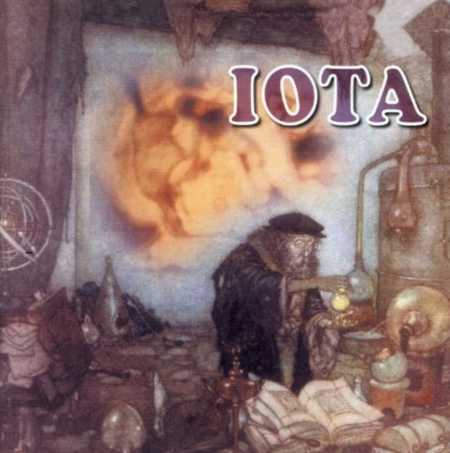 Iota was a Northeast El Paso band. Carl Neer (vocals, bass); Mark Evans (guitar); Steve Phipps (organ) and Rich Ramaka (drums). Iota's biography is a short read and its discography even shorter. Hailing from El Paso, TX, this four-piece was active in the late '60s and early '70s. It recorded a studio session in 1971 for the Suemi label, out of which two singles came out. Success -- and the projected LP -- never materialized. Thanks to Suemi's archiving care, the Shadoks imprint was able to retrieve this lost album in 2003. Iota had little money and Suemi spent little more on them: The eight-track tapes sound thin and under-produced, but the music features enough original quirks to catch the interest of '70s psychedelic/acid rock collectors. To the standard post-Cream power trio, Iota added Hammond organ (played by Steve Phipps), which takes the group's sound closer to early Deep Purple, especially in "Sing for You." The highlight of the set is "Precincts," the group's first single A-side. A dark, moody song mixed with lots of cavernous bass, it is unusual even by heavy psych rock standards and features a gripping melody delivered with much drama by leader Carl Neer. "Love Come Wicked," "Bottle Baby," and "Better Place" also stand as nicely written songs and walk the line separating blues-rock and psych rock. More overtly pop, "I'm Gonna Be a Man" and "Our Love So Warm" are less successful.(AMG)01 - Precincts02 - Glympses03 - R.I.P.04 - Love Come Wicked05 - Bottle Baby06 - Sing For You07 - Better Place08 - The Words Are True09 - I'm Gonna Be A Man10 - Our Love So WarmLINK Iota was a Northeast El Paso band. Carl Neer (vocals, bass); Mark Evans (guitar); Steve Phipps (organ) and Rich Ramaka (drums). Iota's biography is a short read and its discography even shorter. Hailing from El Paso, TX, this four-piece was active in the late '60s and early '70s. It recorded a studio session in 1971 for the Suemi label, out of which two singles came out. Success -- and the projected LP -- never materialized. Thanks to Suemi's archiving care, the Shadoks imprint was able to retrieve this lost album in 2003. Iota had little money and Suemi spent little more on them: The eight-track tapes sound thin and under-produced, but the music features enough original quirks to catch the interest of '70s psychedelic/acid rock collectors. To the standard post-Cream power trio, Iota added Hammond organ (played by Steve Phipps), which takes the group's sound closer to early Deep Purple, especially in "Sing for You." The highlight of the set is "Precincts," the group's first single A-side. A dark, moody song mixed with lots of cavernous bass, it is unusual even by heavy psych rock standards and features a gripping melody delivered with much drama by leader Carl Neer. "Love Come Wicked," "Bottle Baby," and "Better Place" also stand as nicely written songs and walk the line separating blues-rock and psych rock. More overtly pop, "I'm Gonna Be a Man" and "Our Love So Warm" are less successful.(AMG)01 - Precincts02 - Glympses03 - R.I.P.04 - Love Come Wicked05 - Bottle Baby06 - Sing For You07 - Better Place08 - The Words Are True09 - I'm Gonna Be A Man10 - Our Love So WarmLINK |
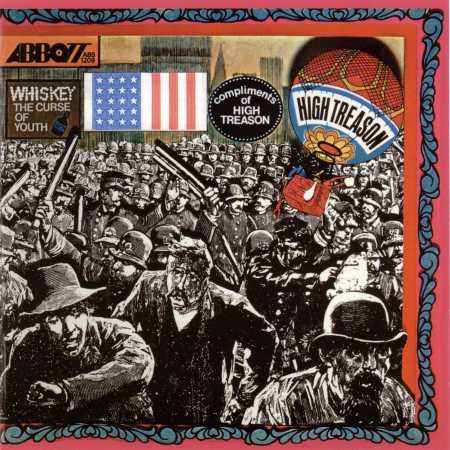 Despite the lip-service paid to bebop and modal jazz -- particularly the playing of legends such as John Coltrane and Miles Davis -- by the late-'60s countercultural scene, few of its rock bands actually attempted to translate the interest into music. The sole album from High Treason, however, was steeped in the genre, thanks in large part to leader and schooled keyboard whiz (check the Bach-like Baroque progressions of "Circadian Rhythm") Edgar Koshatka. High Treason marries extensive jazz interplay with a darkly atmospheric type of rock that took its cues, right down to the shared coed vocals, from the Jefferson Airplane. The music ultimately isn't as accomplished as anything in that band's catalog, but it is for want of distinctive songwriting, not because High Treason lacked the chops or ideas to compete with the top-flight artists of the day. High Treason has musicianship to spare, a profusion of adventuresome moments. But at just six numbers, it is very much an album that puts musical skills before songs. Vocalists Marcie Rauer and Joe Cleary sound much more at ease on the funky country-soul of "Maybe, Maybe," the finest actual song on the album, than they do on the jazzy and psychedelic material (the embarrassing scat interpretation of "Subterranean Homesick Blues," for instance). Rauer, in particular, tends to over-sing at times, presumably in an effort to sound more like Grace Slick. The instrumentalists suffer no such problem. On the final two cuts, "The Witch" and "Fallin' Back," the band delves all the way into straight jazz during extended instrumental passages with electric results. But both also highlight the problematic nature of the album. As wonderful as the music can be -- and each song has scintillating flashes -- there simply is nothing to take away except the memory of the outstanding playing. ~ Stanton Swihart This self-titled LP was recorded in Philadelphia & features some back up by musicians that played with Perry Leopold. The album features the beautiful & haunting female vocals of Marcie Rauer, who sings over the spacey, jazzy, bluesy & psychedelic sound. Marcie Rauer (vocals), Joe Cleary (vocals); Saul Goodman (guitar); Edgar Koshatka (keyboards); Bobby Blumenthal (percussion).01 - Leo02 - Maybe, Maybe03 - Subterranean Homesick Blues04 - Circadian Rhythm05 - The Witch06 - Fallin' BackLINK Despite the lip-service paid to bebop and modal jazz -- particularly the playing of legends such as John Coltrane and Miles Davis -- by the late-'60s countercultural scene, few of its rock bands actually attempted to translate the interest into music. The sole album from High Treason, however, was steeped in the genre, thanks in large part to leader and schooled keyboard whiz (check the Bach-like Baroque progressions of "Circadian Rhythm") Edgar Koshatka. High Treason marries extensive jazz interplay with a darkly atmospheric type of rock that took its cues, right down to the shared coed vocals, from the Jefferson Airplane. The music ultimately isn't as accomplished as anything in that band's catalog, but it is for want of distinctive songwriting, not because High Treason lacked the chops or ideas to compete with the top-flight artists of the day. High Treason has musicianship to spare, a profusion of adventuresome moments. But at just six numbers, it is very much an album that puts musical skills before songs. Vocalists Marcie Rauer and Joe Cleary sound much more at ease on the funky country-soul of "Maybe, Maybe," the finest actual song on the album, than they do on the jazzy and psychedelic material (the embarrassing scat interpretation of "Subterranean Homesick Blues," for instance). Rauer, in particular, tends to over-sing at times, presumably in an effort to sound more like Grace Slick. The instrumentalists suffer no such problem. On the final two cuts, "The Witch" and "Fallin' Back," the band delves all the way into straight jazz during extended instrumental passages with electric results. But both also highlight the problematic nature of the album. As wonderful as the music can be -- and each song has scintillating flashes -- there simply is nothing to take away except the memory of the outstanding playing. ~ Stanton Swihart This self-titled LP was recorded in Philadelphia & features some back up by musicians that played with Perry Leopold. The album features the beautiful & haunting female vocals of Marcie Rauer, who sings over the spacey, jazzy, bluesy & psychedelic sound. Marcie Rauer (vocals), Joe Cleary (vocals); Saul Goodman (guitar); Edgar Koshatka (keyboards); Bobby Blumenthal (percussion).01 - Leo02 - Maybe, Maybe03 - Subterranean Homesick Blues04 - Circadian Rhythm05 - The Witch06 - Fallin' BackLINK |
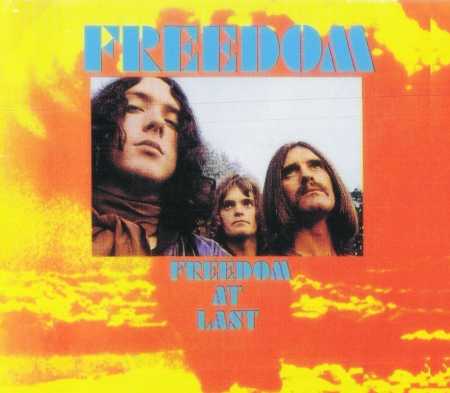 Freedom was a psychedelic rock band active in the late 1960s and early 1970s, formed initially by members of Procol Harum. Ray Royer and Bobby Harrison, who had performed on the hit Procol Harum single "A Whiter Shade of Pale", were kicked out of the Harum by vocalist Gary Brooker, and replaced by Robin Trower and Barry Wilson. Royer and Harrison then formed Freedom with Steve Shirley and Tony Marsh, who was immediately replaced by pianist/organist Mike Lease, releasing a two German singles and the soundtrack for the Dino de Laurentiis film Black on White. In 1968, Harrison entirely overhauled the group's membership, and the new lineup began recording with more of a hard rock sound, scoring tour dates with Black Sabbath, Jethro Tull, and The James Gang. Further lineup changes occurred before the band finally splintered in 1972, with Harrison going on to Snafu. Freedom At Last was the second release of the band. 01 - Enchanted Wood02 - Deep Down the Bottom03 - Have Love Will Travel04 - Cry Baby Cry05 - Time Of The Season06 - Hoo Doo Man07 - Built For Comfort08 - Fly09 - Never Loved A Girl10 - My Life11 - Can't Stay With Me12 - Dusty Track13 - Dirty Water (Bonus Track)14 - Ain't No Chance To Score (Bonus Track)LINK Freedom was a psychedelic rock band active in the late 1960s and early 1970s, formed initially by members of Procol Harum. Ray Royer and Bobby Harrison, who had performed on the hit Procol Harum single "A Whiter Shade of Pale", were kicked out of the Harum by vocalist Gary Brooker, and replaced by Robin Trower and Barry Wilson. Royer and Harrison then formed Freedom with Steve Shirley and Tony Marsh, who was immediately replaced by pianist/organist Mike Lease, releasing a two German singles and the soundtrack for the Dino de Laurentiis film Black on White. In 1968, Harrison entirely overhauled the group's membership, and the new lineup began recording with more of a hard rock sound, scoring tour dates with Black Sabbath, Jethro Tull, and The James Gang. Further lineup changes occurred before the band finally splintered in 1972, with Harrison going on to Snafu. Freedom At Last was the second release of the band. 01 - Enchanted Wood02 - Deep Down the Bottom03 - Have Love Will Travel04 - Cry Baby Cry05 - Time Of The Season06 - Hoo Doo Man07 - Built For Comfort08 - Fly09 - Never Loved A Girl10 - My Life11 - Can't Stay With Me12 - Dusty Track13 - Dirty Water (Bonus Track)14 - Ain't No Chance To Score (Bonus Track)LINK |
|
|
Statistics
Total online: 1 Guests: 1 Users: 0
|








